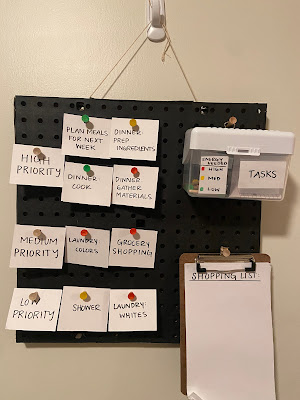Are Your Senses Trusthworthy?
Senses, they are more than meets the eye.....or ear.... or fingers......or even tongue.
Like most animals, our senses play a significant role in our survival. They help prevent stubbed toes, know when milk has gone sour, and can even alert us to danger (like when you burn those cookies, you swear you were watching in the oven). However, not everything is about survival. Senses also enable us to notice the unique scent of the people we love (even when it's a bit unpleasant). They can connect us to fond memories of thanksgiving turkey roasting in the oven or see the magic of the flowers blooming in the spring. They even allow you to feel the embrace of a friend when you need them. Senses are essential to life as we know it, but can you actually trust your senses?
The brain is a complex entity; it can process tons of information in a short amount of time and in a compact space. Because there is so much happening, so quickly, sometimes even the mighty brain falters in its ability. For example, the color-changing dress...
In 2015, a photo took the internet by storm, sparking debate for years. The image contained a picture of a striped dress, and the discussion centered around what colors the dress was. Some people saw the dress as black and blue, while others swore that the dress was white and gold. Neither side could understand the other, nor were they willing to budge on what they saw. No matter which side you were on, it was impossible to conceive that a whole group of people could have their eyes all deceive them the same way. After years of debate... Science has finally had the last word.
They discovered that our brain isn't perfect... nor is our sense of sight. The simplest explanation of how we see light is based on wavelengths. Every color has its own unique wavelength, and when captured by our eye, our brain can recognize those wavelengths and perceive the matching color. Now, the thing about human evolution is.... it is not simple. It wasn't enough for our brains to recognize color; we had to do it under changing conditions. As we go through our day with the sun constantly changing its position, the color of the ambient light changes with it. Its hues can shift from pinks to whites, blues, yellows, and red. Our brain adjusts to those changes by editing out some of these hues to get a "clearer" image. It just so happens that the lighting in which the photo of this dress was taken was at the tipping point of one of these adjustment zones, causing the brain to make its best attempt at perceiving the correct colors. Some brains adjusted for the blue hues causing them to be edited out and showing the dress to be white and gold. Other brains edited out the gold hues, leaving them a blue and black dress with the correct coloring.
Our eyes and brains work together to continuously deceive us. They constantly edit things out without our knowledge and create biased images based on reasonably little information. The reality is that we cannot perceive much of the world around us. For example, we can only perceive 1/10trillonth of the light that exists. Once again, our brain isn't perfect, it has its limits, and it often compensates for those limits by adjusting our perceptions.
So can we trust our senses?
Yes, for the most part, but we shouldn't allow our senses to limit us. Our brains are far more complex than just the perception of senses. We can actually alter what we perceive to be true. For example, after learning about the color-changing dress phenomenon, I can now (with some effort and focus) see both sets of colors. My brain adjusted based on what I learned and expanded my own perceptions. This is thanks to something known as neuroplasticity.
Neuroplasticity allows our brain to take in new knowledge and experiences and adjust how we think or perceive.
Isaac Lidsky used neuroplasticity to change his entire mindset after he became blind. As his vision decreased, he became highly fearful of how his lack of sight would affect his ability to live. He feared how his perceived world would or wouldn't look after, completely losing sight. It wasn't until he realized that vision does not solely rely on sight that he began to perceive his situation differently. He learned this through his experience with an Occupational Therapist with a low vision specialty. His lack of vision only altered some practicalities of his life, not his entire life. He still could choose this reality because sight only makes up a small portion of it, and we know that a small amount can be deceiving.
A famous quote from Helen Keller sums this concept up quite perfectly, so I will end this post with her wisdom. (If you'd like to hear more about Isaac's story, listen to his audio cast shared below)
"The only thing worse than being blind is having sight but no vision. " - Helen Keller.
References
NPR. (2017). How can go blind give you vision? NPR. Retrieved April 13, 2022, from https://www.npr.org/2017/01/20/510624029/how-can-going-blind-give-you-vision.
Rogers, A. (2015, February 27). The science of why no one agrees on the color of this dress. Wired. Retrieved April 13, 2022, from https://www.wired.com/2015/02/science-one-agrees-color-dress/

Comments
Post a Comment